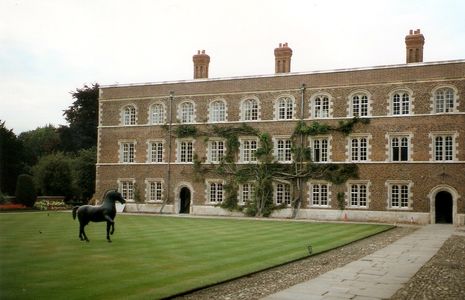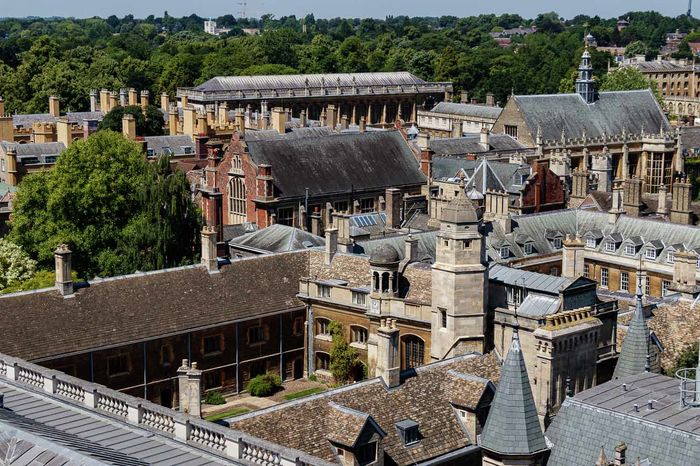Rustat descendants oppose Jesus College decision to relocate his statue
Rustat’s 10th great-nephews dispute that Rustat’s links to slavery are grounds for the statue’s relocation

Descendants of Tobias Rustat (1608-94) have complained to Jesus College and submitted an objection to the Church of England following the College’s announcement in November that it would move a statue of Rustat from its chapel.
Rustat, philanthropist and courtier to Charles II, has been commemorated at Jesus College since 1671 for his role as a benefactor for scholarships for orphaned children issued from the Anglican clergy. However, he was also an investor in the Royal African Company, which transported over 80,000 men, women and children from Africa to the Caribbean, and received dividends from his investment in the Company while making donations to the College during the 1660s-70s.
The decision to remove Rustat’s statue from the College’s chapel, proposed by Jesus College’s Legacy of Slavery Working Party (LSWP) and accepted by the College Council in November, must be authorised in accordance with the Church of England’s Faculty Jurisdiction Rules, given the chapel’s status as a Grade I listed building.
Rustat’s name has already been revoked from the name of a feast at the College, and a portrait of him has been removed from the Senior Common Room.
However, Stephen Hemsted and his three brothers, the 10th great-nephews of Tobias Rustat, have filed a complaint to Jesus College and the Church of England, insisting that they “regard Tobias Rustat as a distinguished ancestor.” Whilst not disputing their ancestor’s links to the Royal African Company, they say the money he donated to the college did not originate from his involvement in the Company.
Hemsted continues: “He made his money in the court of Charles II. It’s clear that the bulk of his wealth came from things [that were] nothing to do with slavery, so the money that was given to Jesus College clearly has nothing to do with slavery.”
He further states there is “no justification” for the memorial to be moved on the grounds of links to slavery, explaining that they believed it would be a mistake to link Rustat’s investment in the Royal African Company with the money he donated to the College.
He added: “We think it’s a mistake to try to link his investment in the Royal African Company to this memorial and the bequest he made to Jesus College. There seems to be no justification on slavery grounds for removing the memorial.”
A spokesperson for Jesus College told The Telegraph: “Following the public notice of our application to the Diocese of Ely to relocate the memorial to Tobias Rustat, Jesus College is considering the views of the various heritage advisory bodies that the Diocese had consulted as part of the faculty application process, including various options for relocating the memorial to a more fitting educational space within the College.”
Master of Jesus College Sonita Alleyne has previously stated that the decision to move his statue was made “in the honest spirit of acknowledging the past and shaping an inclusive future.”
Meanwhile, the University also announced in November that it was considering removing a small stone statue of Rustat overlooking West Court at The Old Schools site, the original site of the University Library (UL) to which Rustat made a series of endowments, with his first one of £1,000 in 1667.
The statement also revealed that the UL was considering how income from its Rustat Fund would be remodelled and renamed to fund research into the slave trade and its legacies, with resources from it dedicated to resources on the transatlantic slave trade and the Black diaspora in the 2020-21 financial year.
 News / Hundreds of Cambridge academics demand vote on fate of vet course20 February 2026
News / Hundreds of Cambridge academics demand vote on fate of vet course20 February 2026 News / Judge Business School advisor resigns over Epstein and Andrew links18 February 2026
News / Judge Business School advisor resigns over Epstein and Andrew links18 February 2026 News / Petition demands University reverse decision on vegan menu20 February 2026
News / Petition demands University reverse decision on vegan menu20 February 2026 News / University Council rescinds University Centre membership20 February 2026
News / University Council rescinds University Centre membership20 February 2026 News / CUCA members attend Reform rally in London20 February 2026
News / CUCA members attend Reform rally in London20 February 2026










